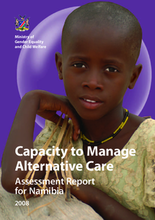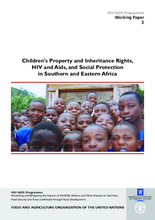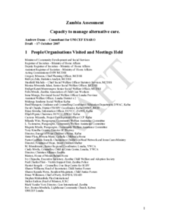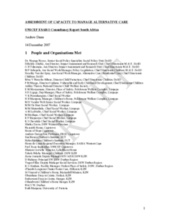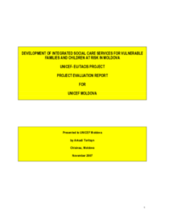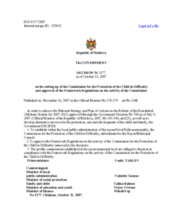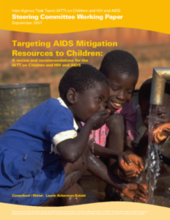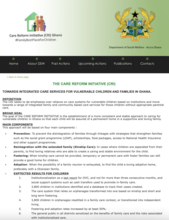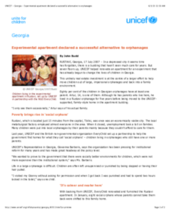Displaying 921 - 930 of 1028
This report prepared for the Ministry of Gender Equality and Child Welfare (MGECW) with financial support from UNICEF Namibia assesses the country’s capacity to manage alternative care systems for children.
Discusses the bi-directional relationship between HIV/AIDS and agriculture, food security, and rural livelihoods, including the relationship between HIV/AIDS and children’s property and inheritance rights
Country level evaluation of contributing factors to the establishment of an alternative care system.
Country level evaluation of contributing factors to the establishment of an alternative care system.
Project Evaluation Report for UNICEF Moldova
On 31 October 2007, the Government of the Republic of Moldova issued Decision No. 1177 on the setting up of the Commission for the Protection of the Child in Difficulty and Approval of the Framework Regulations on the activity of the Commission.
Evaluates AIDS mitigation and targeting with child sensitive objectives and global guidance
A resource site based on the first Regional Consultation on Child Care System Reform held in Sofia in early July. The consultation brought together 120 key social welfare delegates from Albania, Bosnia & Herzegovina, Bulgaria, Croatia, UN-administered Kosovo, FYR Macedonia, Montenegro, Romania, Serbia and Turkey.
This document offers a brief overview of the Care Reform Initiative in Ghana: “Every child deserves a family” July/Aug 2006- August 2007.
In Georgia, UNICEF and EveryChild have teamed up to place children in need of alternative care in small, supervised apartments as an alternative to orphanages.

